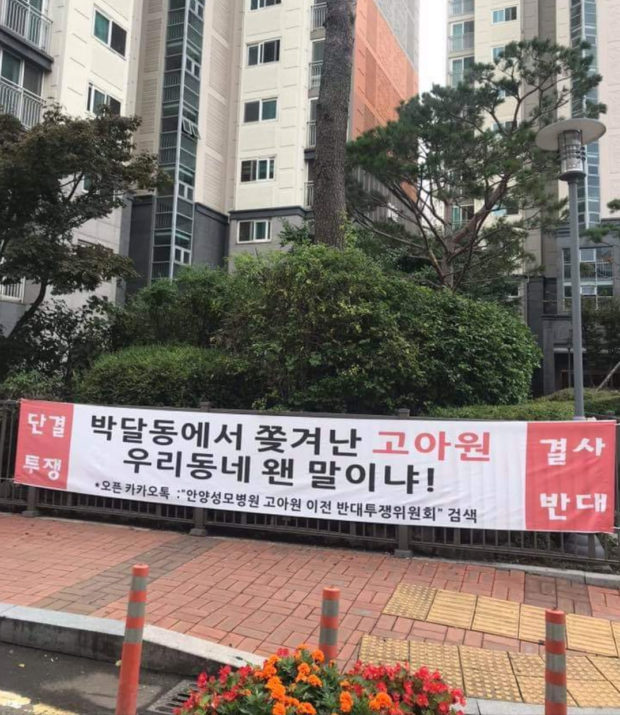Confucianism and Korea’s Children
Culture in Korea is very different from most countries. It is heavily influenced by Confucianism, so the oldest in families are held with the highest respect. While Confucianism has some good values, there is a lot of evil in it as well, including ancestor worship and the neglect of the orphan. Most Koreans believe in 천륜 (Cheonryoon), which is roughly translated into English as “filial piety.” The real meaning is “relationship from heaven,” a belief that the relationship of parents with their children (blood related) is given from heaven and is the most important of all relationships. It’s a relationship that is permanent and should never be broken since it was made from heaven. So if you break this family tie you have committed one of the most grievous sins. The greatest threat a Korean parent can give their child is, “If you do this then you are no longer a part of this family.” Most American parents would never make that threat, but it is a common threat in Korean soap operas and among families with conflict (https://www.comequicklyministries.org/blog/soul-ties-and-controlling-parents/).
Because this belief of “relationship from heaven” is held so highly, orphans are looked upon as a lower people. Sadly even most workers in the social welfare sector of Korea hold to this belief. Adoption is extremely rare in Korea because most Koreans are unable to see anyone as family other than their own flesh and blood. Even nephews and nieces are not viewed as their own. Some children in the orphanages have wealthy aunts and uncles who refuse to care for them because they feel zero responsibility for them.
Because of this wicked belief, orphans are discriminated against and can be denied jobs or marriage because of their background. I know of Christian pastors and elders who have disallowed their children from marrying an orphan. Even a Christian pastor working at an orphanage told a young adult orphan to break up with her boyfriend because she was dating another pastor’s son and “such a relationship wouldn’t be right.”
Many orphans lie even to their friends and say they have family. One of our Oak Tree Project graduates is now working as a social worker in an orphanage in Seoul and she was warned by her director not to reveal to anyone there that she was raised in an orphanage because her co-workers might judge her or look down on her. So this graduate has requested to our staff that we pretend we don’t know her when we visit the orphanage she is working at. This has broken our hearts, especially mine since I’ve known this young woman since she was in elementary school. I know that the girls she cares for would be inspired if they found out the dorm mom they love so much was an orphan just like them. But I also know that she could face bullying/scorn from her fellow workers if they find out she is an orphan. It is tragic that an adult orphan has to hide her past from orphanage workers.
천륜 (“Relationship from heaven”) doesn’t just affect mindsets toward orphans, it also affects Koreans’ mindsets toward adoption. Most Koreans, including Christians, cannot fathom adopting someone outside of their bloodline. Family is only meant for those related by blood. To many Koreans even if someone is “adopted” the person still isn’t really a part of the family because they don’t have the same bloodline (“relationship from heaven”).
The Korean government has tried to promote adoption and offers many incentives. While a foreigner adopting a Korean child will likely have to pay $20,000+ to adopt, a native Korean can adopt for free and also receive monthly support from the government to help raise the child. But despite the many incentives, adoption within Korea is still rare. I believe only the revelation of God’s love and adoption can break this false mindset.
Steve Morrison of MPAK (Mission to Promote Adoption to Korea) is a Korean-American adoptee who visits Korea often and shares his testimony to churches and encourages adoption. Some of these churches have been stirred by the revelation that God adopted every believer, and their hearts have opened to adoption. I have been blessed to meet some beautiful Korean families with multiple adopted kids in them. While these Korean churches that now promote adoption are still in the vast minority, they are proof that God can change the hearts of the nation.
Ephesians 6:12 – For we do not wrestle against flesh and blood, but against the rulers, against the authorities, against the cosmic powers over this present darkness, against the spiritual forces of evil in the heavenly places.
Related articles…
This is from 1989 after the Seoul Olympics: Keeping Them Home : Orphan–A Shame Fades in S. Korea https://www.latimes.com/archives/la-xpm-1989-09-01-mn-1466-story.html
About abuses at an orphanage and Korea trying to cleanse the country of orphans before the 1988 Olympics (this is tough to read): https://edition.cnn.com/2016/10/25/asia/south-korea-brothers-home-abuse/index.html
The following is a banner that has been put up in an area just south of Seoul in protest to an orphanage moving into the area. It reads, “An orphanage driven out from Bagdal-Dong, What nonsense is it to come to our neighbor!” In red, “Unite, Fight, Association, Oppose.”

The orphanage that I serve at originated in the slums of Yongsan, Seoul, back in the 1960’s. Soon that area began to get built up and people in the neighborhood petitioned the government that the orphanage be moved away. The government complied and moved the orphanage outside Seoul to a place where the kids had to walk over an hour to get to school each day. A decade later that area also began to get built up and once again people in that neighborhood petitioned the government to move the orphanage away. The government felt bad about moving the orphanage twice in such a short time so they instead ordered a large park to be built in between the growing neighborhood and the orphanage to serve as a barrier between the two.
MPAK’s blog: http://mpakusa.blogspot.com/

